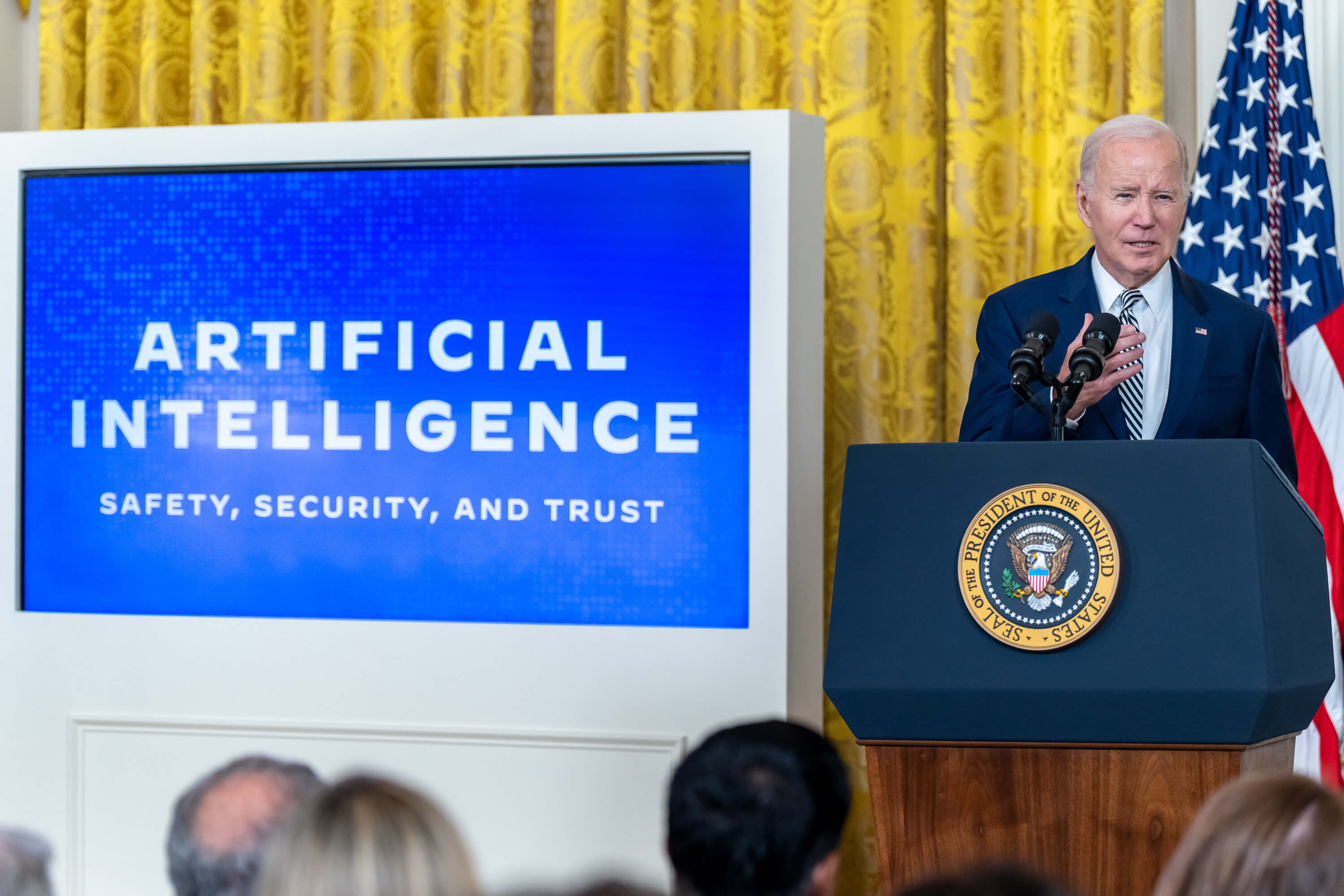The Cyberlaw Podcast: Blockchain Takes Over the Podcast
On Episode 261, blockchain takes over the podcast again. We dive right into the recent activity from the SEC, namely, the Framework for “Investment Contract” Analysis of Digital Assets and the No-Action Letter issued to TurnKey Jet, Inc. (TurnKey) for a digital token.
Published by The Lawfare Institute
in Cooperation With

On Episode 261, blockchain takes over the podcast again. We dive right into the recent activity from the SEC, namely, the Framework for “Investment Contract” Analysis of Digital Assets and the No-Action Letter issued to TurnKey Jet, Inc. (TurnKey) for a digital token. Gary Goldsholle noted this guidance has been eagerly anticipated since July 2017 when the SEC first applied the Howey Test to a digital token with the DAO report. The current framework focuses primarily on the reasonable expectation of profits and efforts of others prongs of the Howey Test. While the framework lays out a number of factors to consider when determining whether a token is a security, the practicality of those factors is still up for debate.
Will Turner explained that the TurnKey No-Action Letter was most useful for parties interested in structuring a private, permissioned, centralized blockchain, but believes the guidance in the Framework would allow for alternative structures. The key from the SEC’s perspective is that there is no expectation of profits for token holders, since the token is a stablecoin pegged to the value of USD and there is no use of the token outside of TurnKey’s network. Jeff Bandman noted the irony that the first No-Action Letter related to blockchain and cryptocurrency involves private jets, particularly since “Mr. and Ms. 401(k)”—the retail investors SEC Chairman Jay Clayton is focused on protecting—are not likely to become private jet users anytime soon.
Jeff emphasized the importance of network functionality and observed that the network for private jet use was already established. Alan Cohn highlighted this tension between the need for centralization to achieve functionality, and need for decentralization as a means to avoid meeting the “derived from the efforts of others” prong of the Howey Test.
Gary then turned to Blockstack’s Regulation A filing, the most comprehensive effort to register a token under Reg. A that we have seen to date. Blockstack is seeking to be a Tier 2 issuer, meaning they can raise up to $50 million in 12 months, which comes with heightened disclosure obligations and requires audited financials. While they seek to raise capital as a security today, their ultimate goal – and a central risk factor in their offering circular – is to achieve the requisite level of decentralization such that they no longer would meet the definition of a security.
Meanwhile, in Congress, the recently reintroduced Token Taxonomy Act of 2019 would exempt a newly defined category of digital tokens from the definition of a security, as well as provide some clarity on tax issues for cryptocurrency users and exchanges. Jeff observed that these amendments might contribute further to a gap in federal regulation over spot trading markets. While the CFTC has enforcement authority, they do not have the authority to directly supervise the bitcoin trading market.
Turning to the interview, Jeff describes how he co-founded Global Digital Finance (GDF), along with other co-founders in Europe, Asia and the United States, in order to address the lack of international standards surrounding the blockchain industry—or even a general consensus of terminology. Jeff describes how GDF has a number of working groups focused on developing high-level principles and standards on a range of topics, including stablecoins, custody, tax and security tokens. GDF is trying to fill in some of the gaps that appear when jurisdictions regulate cryptocurrencies and crypto-assets differently. As an example of its work, GDF’s KYC/AML/CTF group recently commented on FATF’s standards, issuing two comments in October 2018 and April 2019.
Jeff is also in the process of launching a new transfer agent service, Block Agent, focused on enabling and supporting SEC-regulated issuances. As markets mature, it is increasingly important to have the necessary post-trade infrastructure, and he is committed to offering services that recognize the novel features and efficiencies around these new technologies.
For our listeners in the D.C. area, Steptoe is hosting a half-day complimentary regulatory symposium this Thursday, May 2, in our D.C. office. Our plenary speakers include current and former commissioners and high-level officials with agencies such as the Federal Energy Regulatory Commission, the Surface Transportation Board, and the Environmental Protection Agency. We will also have breakout panels focused on four separate topics: Deference, Globalization, Regulatory/Legislative Approach and Preemption. To register, click here.
Download the 261st Episode (mp3).
You can subscribe to The Cyberlaw Podcast using iTunes, Google Play, Spotify, Pocket Casts, or our RSS feed!
As always, The Cyberlaw Podcast is open to feedback. Be sure to engage with @stewartbaker on Twitter. Send your questions, comments, and suggestions for topics or interviewees to CyberlawPodcast@steptoe.com. Remember: If your suggested guest appears on the show, we will send you a highly coveted Cyberlaw Podcast mug!
The views expressed in this podcast are those of the speakers and do not reflect the opinions of the firm.





